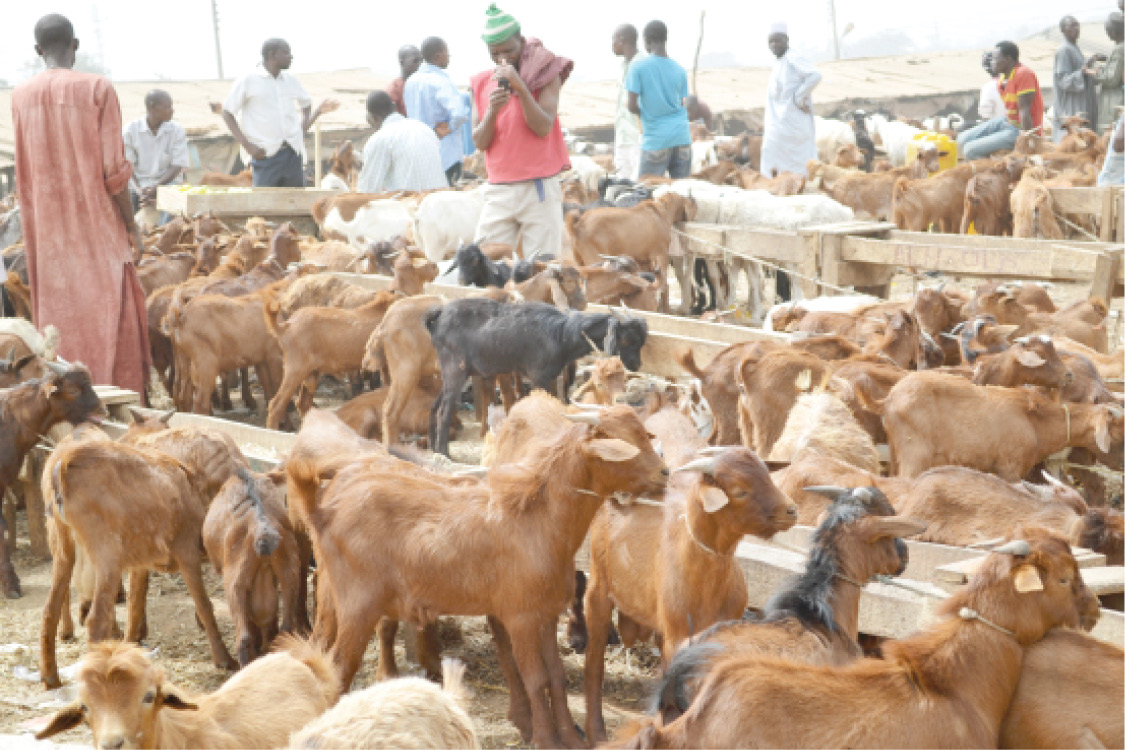The International Feed Industry Federation (IFIF) has said that the global compound feed market was over 1.2 billion tonnes last year (2023).
IFIF data also showed that the global commercial feed industry has an estimated yearly turnover of more than US $500 billion, which is an excess of N716.3 trillion.
Last week, in an effort to support the development of a strong feed and fodder industry valued at over N23 trillion, representatives from the African Union-Inter African Bureau for Animal Resources (AU-IBAR) met with Nigerian stakeholders as part of the “Resilient African Feed and Fodder Systems” initiative to work out strategy for the emergence of a vibrant Nigerian feed system.
This is coming in the heels of growing demand for animal protein, particularly for fish, dairy and livestock, globally pushing demand for feed high.
- Again, prices of farm produce surge in Katsina
- AGRO SOLUTIONS: A guide to drought-resilient farm animals
The production of animal proteins is predicted to increase by 1.7 per cent annually, with nearly 70 per cent of that growth coming from meat, 90 per cent from aquaculture and 55 per cent from dairy products, according to estimates from the United Nations Food and Agriculture Organisation (FAO).
The Minister of State for Agriculture and Food Security, Dr Aliyu Sabi Abdullahi, said there was so much hidden treasure in the feed and fodder industry the country ignored over the years.
“I would like you to take note of the estimated population of livestock in Nigeria, which you are aware of. Based on our calculations, the livestock sector in Nigeria is worth approximately N33 trillion, while the worldwide livestock economy is believed to be worth approximately US$3.3 trillion.
“Up to 70 per cent of that sector is actually feed and fodder, which means that by simple gesticulation, we are talking about a Nigerian feed and fodder industry that is worth N23 trillion.
“This is what is hidden below the ladder. This is what we have not structured. This is what we have not paid attention to, and as a result, we get constant herders-farmers clashes with needless loss of lives and property,” Dr Sabi told the gathering of experts during the AU-IBAR meeting on ‘Resilient African Feed and Fodder Systems’ held last week in Abuja.
Experts in the feed and fodder industry said expanding this sector would not only solve the unnecessary carnage and hatred that have long plagued herders and sedentary farmers but also generate income and economic prospects for the country.
“If you look at the employment opportunities inherent in this sector, honestly, it is not what you will ignore. I am happy that we have identified all the pathways; and clearly, from the output of what has been done, we now have a clear line of sight to how we are going to drive the feed and fodder sector to become that industrial and economic hub that everybody would want to come into.
“If you take a look at the livestock industry and the idea around feed and fodder, we are creating a Nigerian feed and fodder industry as a new economic hub for food and nutrition security. This will be our contribution to actualising President Tinubu’s 1 trillion US dollar economy by 2026,” the minister told the stakeholders.
Also, Dr Sarah Ossiya of the African Union-InterAfrican Bureau for Animal Resources, Nairobi, Kenya during the meeting, said the AU was working to help African countries structure their feed and fodder system for many reasons.
Speaking from what she called “an evidence-based perspective,” the project started with a robust analysis of the effect of three global crises on the agricultural sector: COVID-19, the Ukraine-Russian war and climate change, which found very strongly, the vulnerability in livestock sector, production sector, and value chains across Africa.
“It was a big eye opener. From this, we learnt that globally, 60 per cent of the grains that is produced are actually dedicated to livestock production. It is in Africa that grain production is a competition between human food and feed for animals,” she said.
Experts said 30 per cent of the livestock sector had already been wiped out because of the disruptions that came due to these global stresses on the agricultural sectors, making demand for a structure feed system “a wakeup call.”
Dr Ossiya, however, warned that Nigeria had to take some serious actions to look at her feed and fodder sector and structure it so that the country would reduce the vulnerability of livestock production to meet the need of the people.
Multi-stakeholder platform set up
Last week, the federal government, in a rapid response, launched a Multi-Stakeholder Platform (MSP) to structure the Nigerian livestock fodder and feed sector that would attract multibillion naira to the country’s economy.
The team was to ensure that the neglected feed and fodder system emerged into a vibrant sector of the country’s agro economy within the next 72 months.
Members of the Multi-Stakeholder Platform comprised of seasoned experts from the academia, feed and fodder business community, dairy and other livestock farmers, farmers’ associations, the media, members of the financial institutions and other key industry players.
Professor Ari Maikano, an expert in animal nutrition from the Nasarawa State University, Keffi, has been given the responsibility to chair the platform that will eventually lead to the emergence of the feed and fodder sector in Nigeria.
But like many other government programmes, this move might suffer neglect like the National Livestock Transformation Plan introduced by the Buhari administration but now hardly mentioned.
However, experts believe that having a robust feed and fodder system would be strategic to the growth of the livestock sector because feed tops cost of production.

 Join Daily Trust WhatsApp Community For Quick Access To News and Happenings Around You.
Join Daily Trust WhatsApp Community For Quick Access To News and Happenings Around You.


